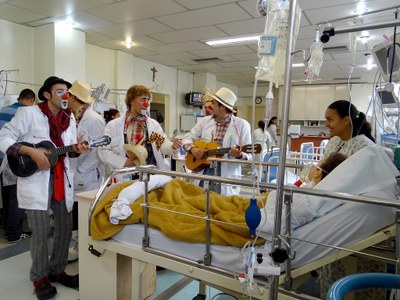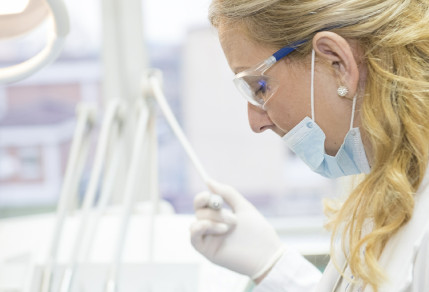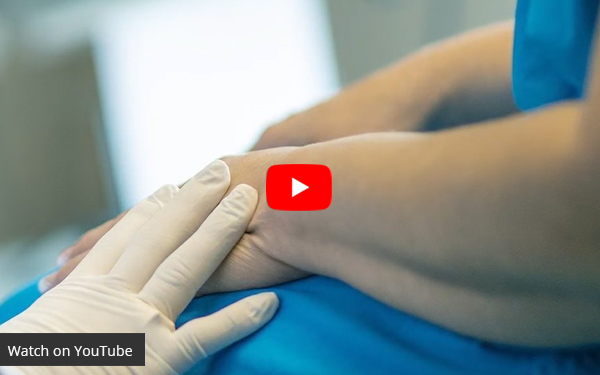When was the “Medical Humanities” Study Centre established and what are its goals?
The “Medical Humanities” Study Centre was established in 2014 at the Department of Classical Philology and Italian Studies thanks to the work of Gian Mario Anselmi and other colleagues, not only physicians, who have taken this field of study, now widely rooted in the Anglo-Saxon world, to heart. The aim of the Centre, now entrusted to my direction, is, on the one hand, to promote meetings, debates and publications that show what contribution the humanities, taken in their broadest sense, can make to understanding and improving the fiduciary nature of the doctor-patient relationship, considered in itself and in its various components and implications (rhetorical, linguistic, narrative, psychological, legal). On the other hand, the aim of the Centre is to promote research in this direction, and then to arrive at “integrated” educational experiences that can contribute effectively to the training of doctors.
 How can the collaboration between medical sciences and the humanities benefit the well-being of patients?
How can the collaboration between medical sciences and the humanities benefit the well-being of patients?
The multifaceted array of disciplines that come under MH intervene on the issue of health, regarded not as the opposite of illness, but as a series of elements that make up Man in his entirety, and therefore constituted through the subject's relationship with what Plato called “the nature of things”. Since this entirety - a complex whole that thrives on internal correlations - has a narrative structure; and since there is no form of identity that is not rooted in some form of narrative (individual, scientific, cultural, political, religious), it is easy to understand why it is important for a Humanities department to tackle this perspective. Just as Man, considered as a subject, does not correspond to the sum of his components, so the narrative cannot be reduced, in this holistic perspective, to the addition or description of its components. As Carl Gustav Jung amusingly observed, “such a view would be tantamount to treating of Cologne Cathedral in a text-book of mineralogy, on the ground that it consisted very largely of stones”. Therefore, from the perspective of a physician like Rita Charon, the acquisition of interpretative tools, derived from the collaboration with her humanist colleagues at Columbia University in New York, provides clinical work with valuable keys to read the patient's narrative - its forms, its timing, its reticences or omissions, its lexicon - in a perspective that makes use of elements that are also non-verbal. Mirror neurons are activated not only when we perform an action, but also when we contemplate its embodied simulation. Interwoven with this is the awareness - which draws new lifeblood from epigenetics (i.e. the influence of the environment on genetic traits) - of the benefit that culture (family, school, the social, natural and political environment) exerts on our genetic make-up: if everything or almost everything is decided by genetics, then the health problem is simply that; if, on the other hand, epigenetics affects us, then we can and must alleviate the health problem with a commitment that is actually civic, not just scientific. According to early epigenetic studies, forager bees become queen bees if they feed on royal jelly, but if their feed changes, the transformation is reversible and they return to what they were. Sticking with this example, the MH Centre at the University of Bologna would like to produce and disseminate royal jelly.
 How is the centre structured: how many researchers does it comprise and what research areas is it involved with?
How is the centre structured: how many researchers does it comprise and what research areas is it involved with?
As far as the academic body is concerned, the MH Centre consists of some sixty scholars with different skills and from different generations. The epigenetic idea of health is at the core of the Centre, which includes exponents not only of the clinical world, but also of the city's culture, politics, the curia, the third sector, the most prestigious associations or cultural entities (Foundations, including Cineteca, Centro San Domenico, Società Medica Chirurgica, Accademia delle Scienze, etc.). Growth is slow because widespread mental barriers need to be overcome, both in the clinical world, which should extend and articulate its idea of health by opening up to the humanistic contribution, and in the humanistic world, which should pragmatically consider the formal and transmissible aspects of hermeneutic art, insofar as reproducible and therefore technical.
What research activities is the Centre conducting and with what results?
Research with publications in the MH series of the FICLIT Department; teaching (we are working on a project for a Summer School and a Winter School); third mission. In particular, the new Rector, Prof. Molari, has approved and is promoting a project that will lead to an important and recurring city meeting on health issues from the hybrid perspective of MH. In general, in a university system rooted in scientific subjects, the difficulty is to preserve the cultural hybridisation of MH without reducing it to any of its components.
The Covid-19 emergency forced everyone to a general redefinition of research. How can “Medical Humanities” help in the fight against the current pandemic?
It is worth noting that the first volume of the FICLIT series deals with MH at the time of Covid-19. During the pandemic, it was evident that our health, unfortunately like our illness, is based on relational dynamics. Without human relationships we could perhaps be organically healthy, but we would not be healthy at all. Culture, beauty, sociality, the environment - instead of being the first perspectives sacrificed by the National Scientific Technical Committee, these should be promoted for what they actually are: fundamental epigenetic components of health, especially if they are experienced among others, with others, for others. From this point of view, if from a human perspective we want to avoid withering away from serious social, political and economic consequences, we must understand that, post Covid-19, MH will not just be a possible option, but a necessity.

